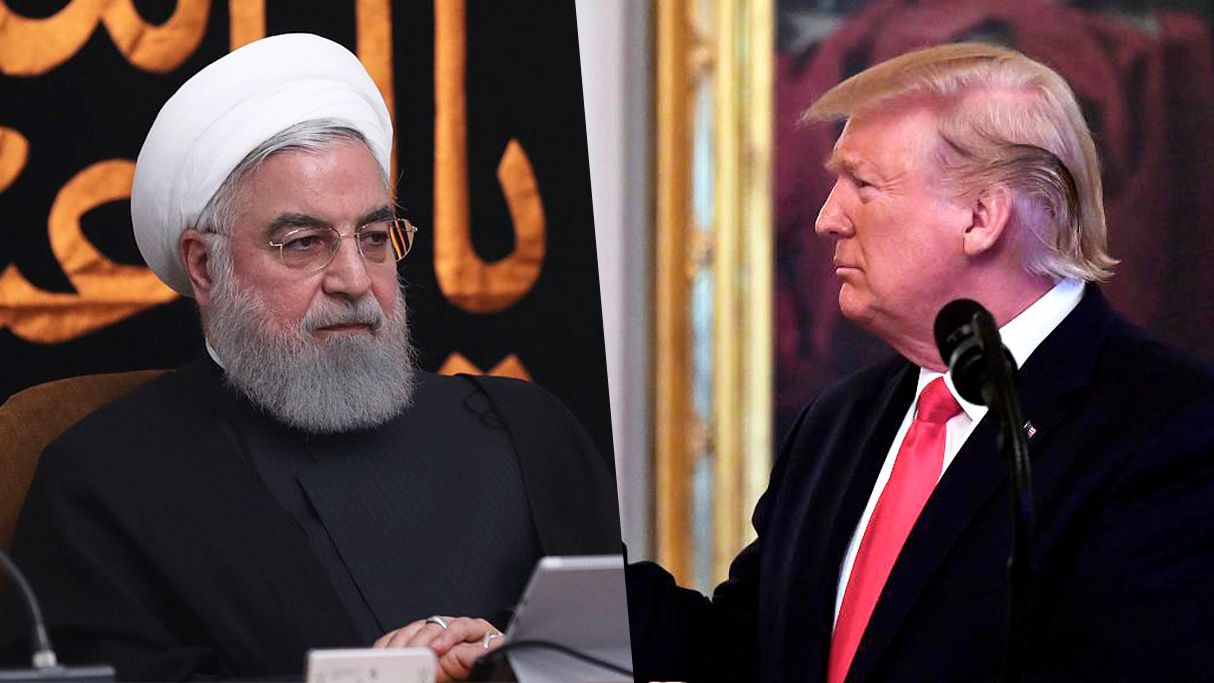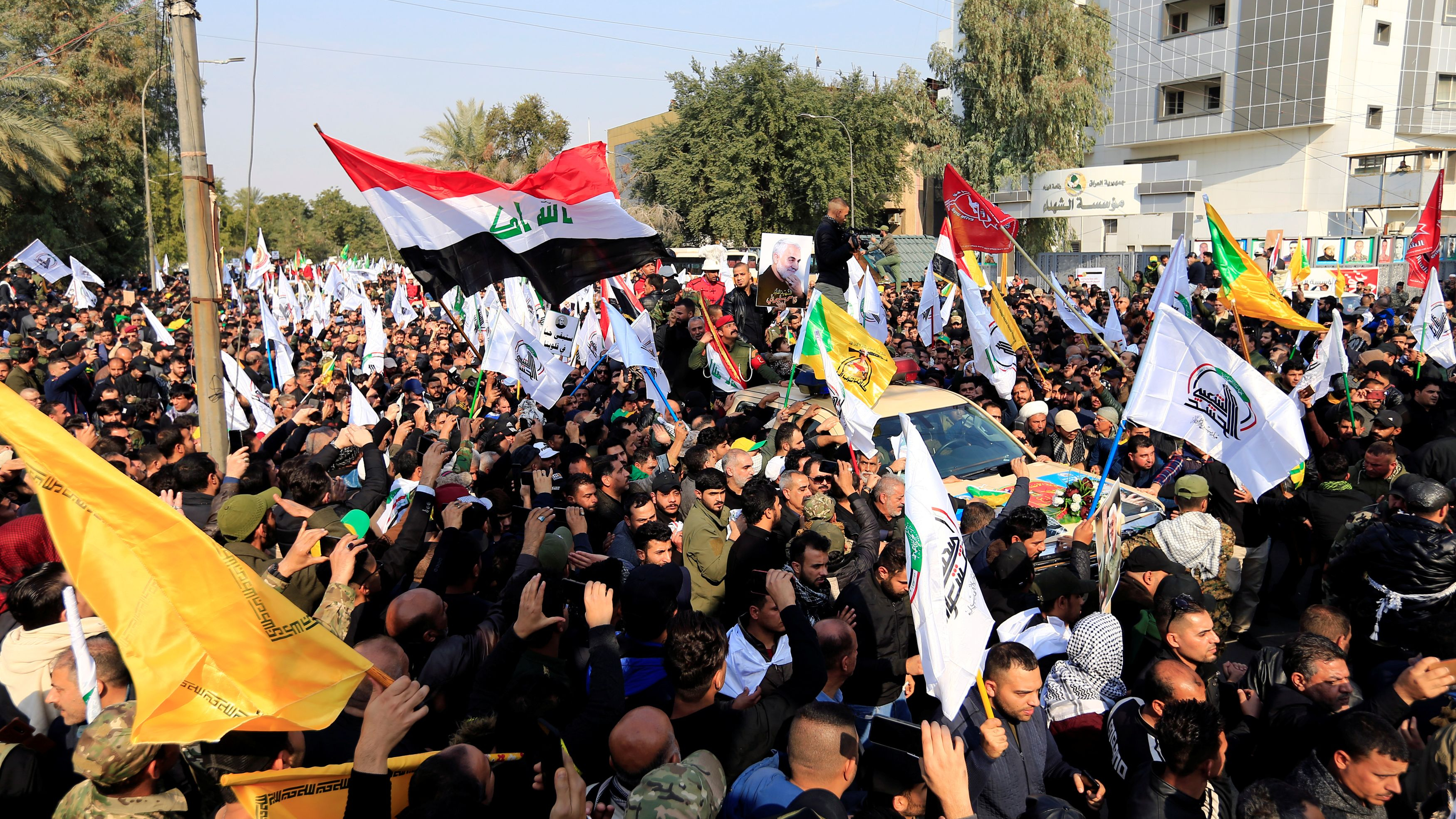
Editor's Note: Dr. Wang Jin is a research fellow of Charhar Institute in China and an associate professor from Northwest University in China. The article reflects the author's opinion, and not necessarily the views of CGTN.
Iran issued an arrest warrant for U.S. President Donald Trump tied to the U.S. drone strike on January 3 that led to the death of General Qasem Soleimani, the commander of the Islamic Republic's Quds Force. Although the Interpol rejected Iran's request of issuing international warrant, and although Brian Hook, the U.S. special representative for Iran, dismissed the arrest warrant announcement as "propaganda stunt," Iran's intention of detaining Donald Trump could not be ignored and downplayed.
But can Iran really detain Donald Trump? It might happen. Iran harbors the intention of capturing Trump. In early January, some opinions emerged in Iran that Tehran would pay 80 million U.S. dollars to anyone who could capture or kill Donald Trump, to avenge Qasem Soleimani. Now the warrant has been officially issued by Iranian justice department, and the legitimacy of the warrant would continue.
It is still unknown whether Donald Trump could win the upcoming presidential election late this year. Without the protection of presidential status, it is hard to say whether Trump could be under well-trained protection to prevent possible captures or attacks implemented by Iran security staff.
Besides, Iran has the capability to launch and organize attacks against Donald Trump and other major figure on the warrant list. For example, the French security establishment foiled an attack led by Iranian cell in Paris targeting Iranian political dissents in February 2018.
Although the plan was not successfully implemented, it suggested the capability of Iran's intelligence network to penetrate into Europe to organize possible attacks.
Third, Iran's strong influence in the Middle East could be turned into successful detainment of figures in the warrant list. Iran's Quds Forces, which supports and leads different military and political groups in the Middle East, especially in Lebanon, Iraq and Syria, might help Iran design and organize plans to capture Tehran wanted figures.

Mourners gather for the funeral of Qasem Soleimani. /Reuters
Mourners gather for the funeral of Qasem Soleimani. /Reuters
In 2015 several Qatar royal members were taken as hostage in Iraq by local militias, and these royal members were freed after Qatar sent large amounts of money and successful pervasion of Doha-backed Syrian rebel groups of withdrawal from certain areas in the Syrian battlefield.
Although the kidnapping was directly implemented by local unknown militias, it was believed that Iran was behind the scenes. Therefore, Iran's influential role in the Middle East could be turned into the arrests of wanted figures in the warrant list, even Donald Trump.
Although the chances for Tehran to detain Donald Trump is relatively low, the intention behind the warrant should not be underestimated. The warrant should be understood as the challenge of Iranian hardliners towards Iranian President Hassan Rouhani, who was the major figure of moderate camp in Iranian political arena.
The warrant came just days after Rouhani's calls for resuming talks with Washington. On June 25, Rouhani declared that he would talk with U.S. at any moment if Trump apologizes and compensates Iran for its losses. After the warrant issued by hardliner controlled Iranian justice departments, the talks between Rouhani and Trump would become illegal.
The year 2021 would be the presidential election year in Iran. Hassan Rouhani, an important figure from moderate camp, would finish his two consecutive four-year terms, and the hardliner-conservative camp hopes to replace Rouhani's presidential office with more assertive leader. To issue the warrant towards Trump, therefore, blocks the Iran government's rapprochement efforts with the Trump administration by labeling Trump as "murderer."
The issued warrant against Donald Trump by Iran justice establishments suggests the rising tension between Tehran and Washington. Given the upcoming U.S. presidential election later this year and the Iranian presidential election next year, more uncertainties between Iran and U.S. could emerge and a peaceful future in the Middle East appears as distant as ever.
(If you want to contribute and have specific expertise, please contact us at opinions@cgtn.com.)